Trump v Biden: All you need to know about US Election
- Published
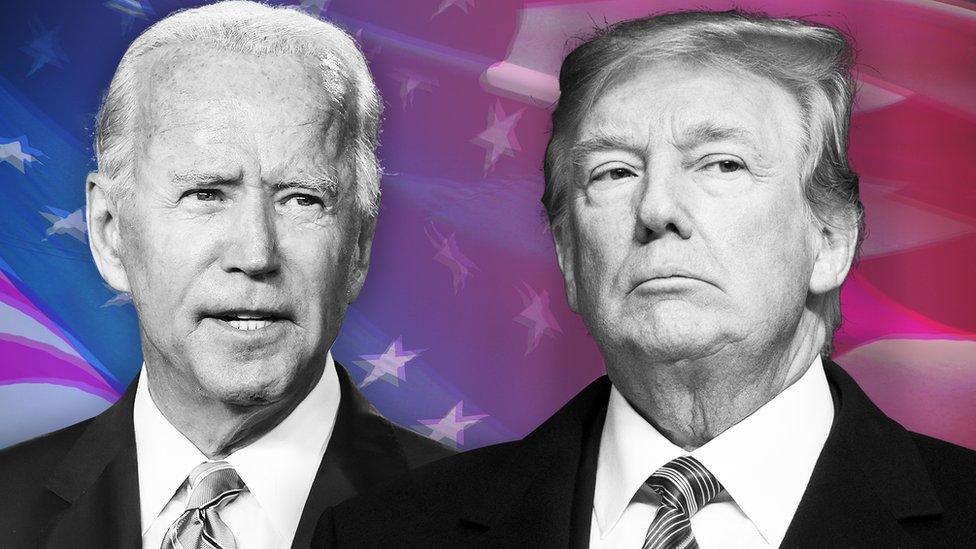
Joe Biden, (left) and Donald Trump (right) have been chosen by their parties as the official presidential candidate
Millions of people in the United States will be voting in November for the next president of the United States - but the contest is already well under way.
The US election is dominated by two political parties - the Democrats and the Republicans.
These two parties have opposing views on lots of major issues like climate change, economics and civil rights.
In a rematch of the 2020 US election, Democrat party candidate Joe Biden, who is the current president, will face former president Donald Trump, who will be the candidate for the Republican party.
This election will have a global impact because the US is one of the most influential countries on the planet as it has the world's most powerful military, a huge economy, and plays a leading role in international institutions such as the United Nations (UN) and NATO.
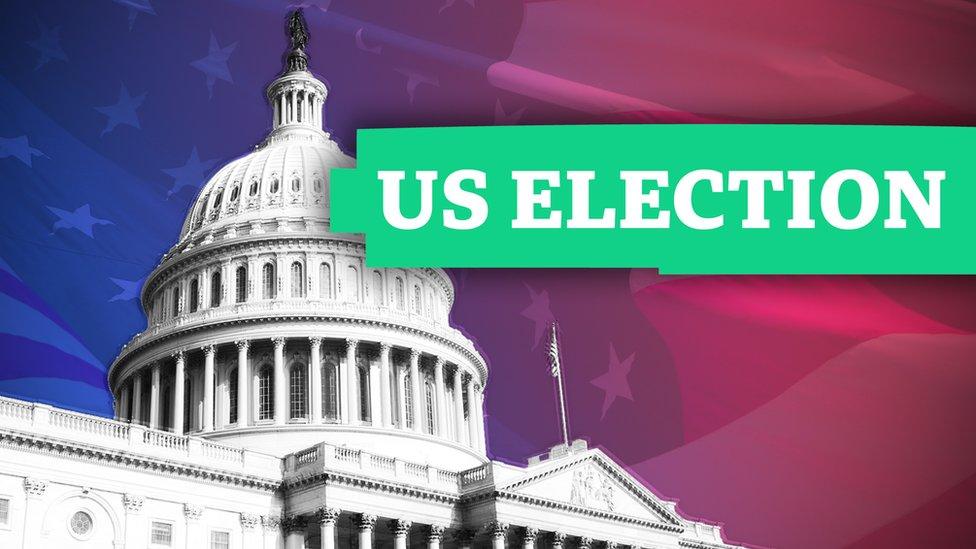
The next president will be inaugurated here, The US Capitol Building in Washington DC
When is the 2024 US presidential election?
The next US presidential election will take place on Tuesday 5 November.
How does the US presidential election work?
An election is held every four years in the United States.
When a president is elected they serve in that role for four years. This is known as a term.
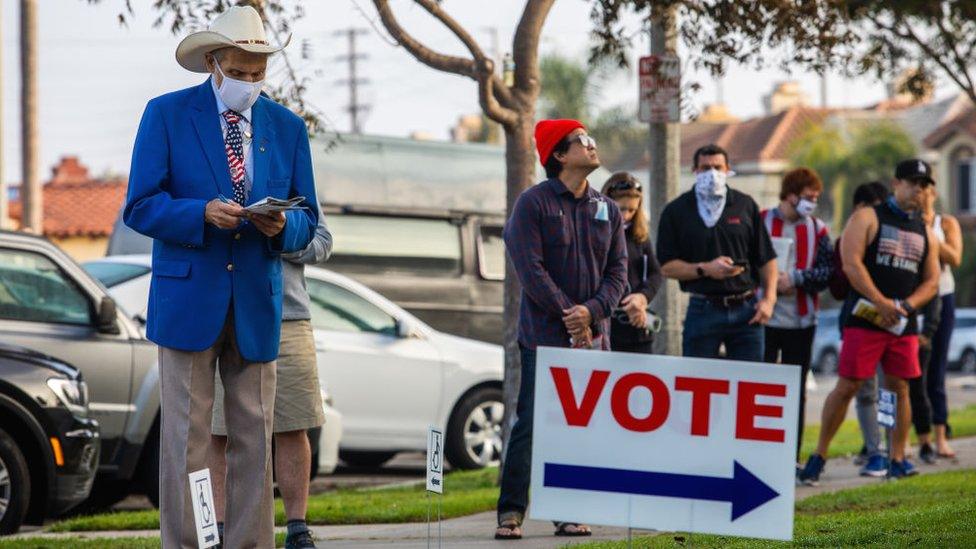
The next presidential election will be held on Tuesday, 5 November 2024
By law, a president can only serve for two terms.
Contests are held in all 50 US states to choose presidential nominees for each party.
Once the nominees are chosen, the presidential election is then held in November.
The winner becomes president-elect until the following January when they are sworn into office.
Who can vote?
Normally, if you are aged 18 or over and you are a US citizen you are allowed to vote in presidential elections.
How do people choose a new president?
Each state is assigned a certain number of votes known as electoral college votes.
There are 538 electoral college votes in total, so a candidate needs to win at least 270 votes to become the next president.

US Election rematch: Biden v Trump
Both Joe Biden and Donald Trump have won enough delegates to become the presumptive nominee for each of their parties.
Both men have been campaigning across the United States to secure the presidential nomination which will be officially announced at party conventions this summer.
It means the sitting president Joe Biden is expected to face Mr Trump in the election later this year - a re-run of the 2020 vote.
This will be the first time since 1956 that the same two candidates have faced each other in back-to-back elections.
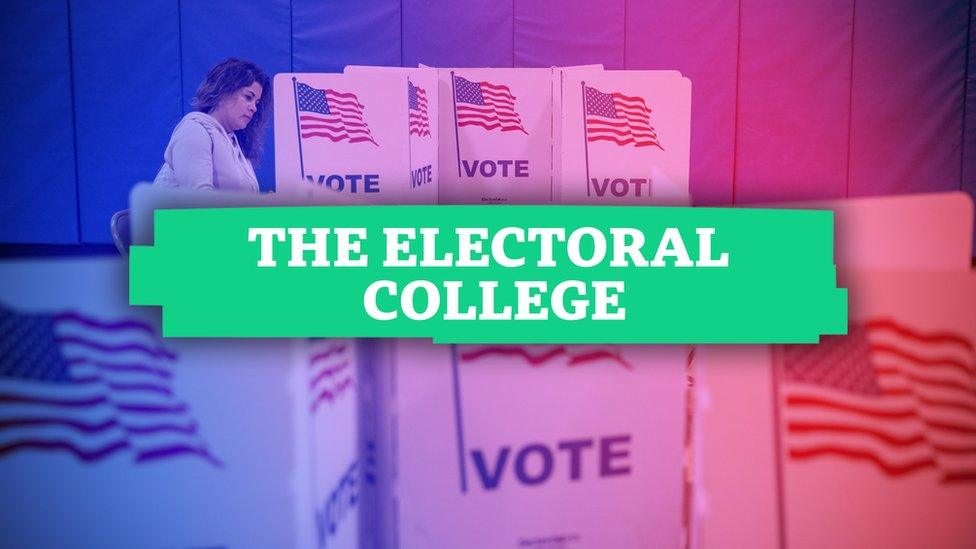
How does the electoral college work?
The number of votes a state is given is based on the size of that state's population, among other things.
For example, the state of California is assigned 54 electoral college votes because it has a population of more than 39 million people.
But the state of Alaska has 3 electoral college votes because it has a population of just over 730,000, according to the 2021 US census.
What is the Electoral College? (from October 2020)
Why is the electoral college important?
Many democracies will elect the candidate who wins the most number of public votes across the nation in a leadership election.
But when Americans vote in presidential elections, they're actually voting for who their state will vote for.
Most states have a "winner takes all" system - whichever candidate gets the most votes in a state wins all of the state's electoral votes.
This means the winner of the "popular vote" - the person with the most votes overall - is not necessarily the winning candidate.
A recent example of this is when Donald Trump won the 2016 election because he had more electoral college votes than his opponent, Hilary Clinton, who had the most votes overall.
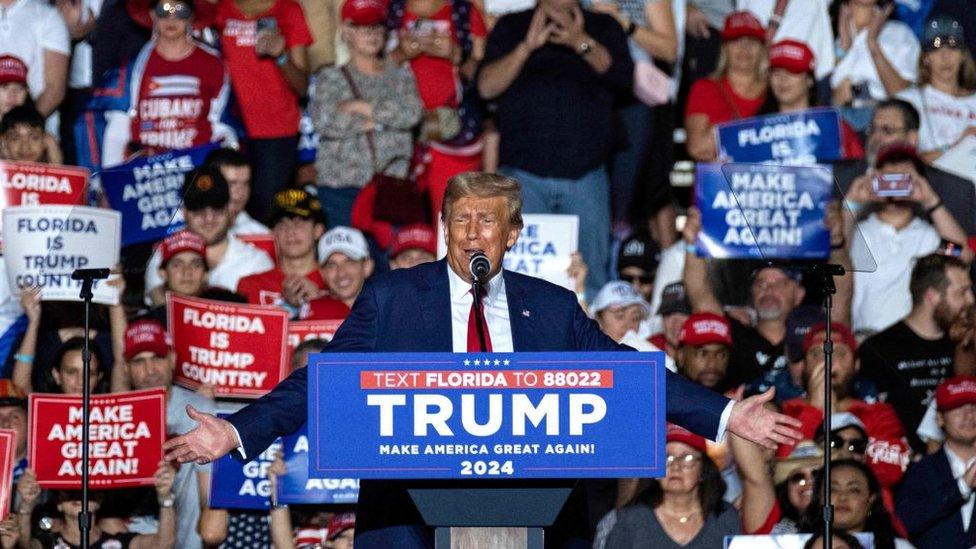
Presidential hopeful Donald Trump has already begun campaigning in swing state Florida
What are swing states?
Because of the way the electoral college works, some US states have more influence over the outcome of the election than others.
These states are called swing states - so called because they often "swing" between voting for the Republicans and the Democrats.
Presidential candidates will spend much of their time campaigning in swing states, as these states could decide the election for them.

What are the key dates in the 2024 US election?
15-18 July: The Republican Party announces their presidential candidate during the Republican National Convention.
19-22 August: The Democratic Party announces their presidential candidate during the Democratic National Convention.
16 September: The first presidential debate will take place at Texas State University in Texas.
1 October: The second presidential debate will take place at Virginia State University in Virginia.
9 October: The final presidential debate will take place at the University of Utah in Utah.
5 November: The day of the presidential election.
- Published15 August 2023
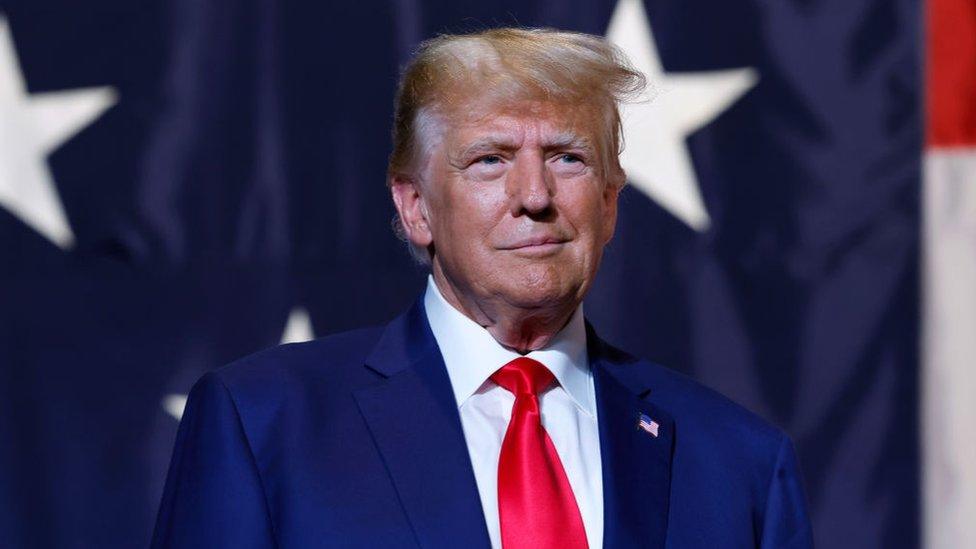
- Published7 January 2021

- Published20 February 2023

